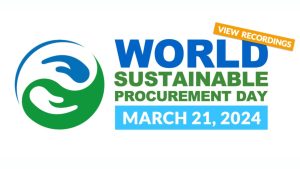South African organisations have enjoyed declining domestic air ticket prices over the last 24 months on routes between Johannesburg, Cape Town and Durban. However, there are further savings to be made, Karen van Staden of benchmarking organisation Purchasing Index (PI) tells SmartProcurement.
Over the last couple of years costs for domestic airlines have risen dramatically owing to the increase in airport charges and the price of aviation fuel. Further, there is fierce competition between airlines over the major domestic routes and the main low-cost carriers are starting to enter the regional market on selected routes.
However, for South African organisations, benchmarked average economy ticket prices on the ‘golden triangle’ (routes between Johannesburg, Cape Town and Durban) declined between December 2009 and November 2011 (see accompanying graph).
The cost of flights on these routes, which make up the majority of domestic air travel for many organisations, could be reduced even further through:
1. Greater use of low cost carriers – many corporate passengers used to use traditional carriers (SAA and BAComair) due to the number of daily flights. Low cost carriers (1time, Mango and Kulula) now offer regular flights throughout most week days.
2. Advance booking – many flights are still booked within 7 days of departure. PI’s benchmark reports constantly show significant savings opportunities if flights are booked 14 days or more in advance, particularly on traditional carriers. PI has strong evidence to suggest that if travellers do have to fly at the last minute, then it is usually much more economical to fly with a low cost carrier.
3. Greater control on flight changes – changes to tickets normally cost money and incur costs from travel management companies (TMCs). Numerous changes within an organisation can also mean that TMCs need more agents to look after each client.
4. Not flying at all – organizations have implemented policies from time to time preventing staff flying to attend certain types of meetings (i.e. internal admin meetings, etc.). Modern technology provides various ways for staff to communicate, while affording them the extra travel hours (normally four to six hours on domestic flights) to get other work done.
South African organisations spend a lot of time designing, implementing and amending travel policies; PI believes that they should spend more time marketing to their staff the savings opportunities and alternatives to travel.
With the likelihood of increasing costs and the environmental pressures associated with travel, organisations need to ‘think out of the box’ to save money and make their staff more productive.
If you would like to participate in PI’s ongoing suite of travel benchmark reports, please contact Karen van Staden on karen@pibenchmark.co.za.


























